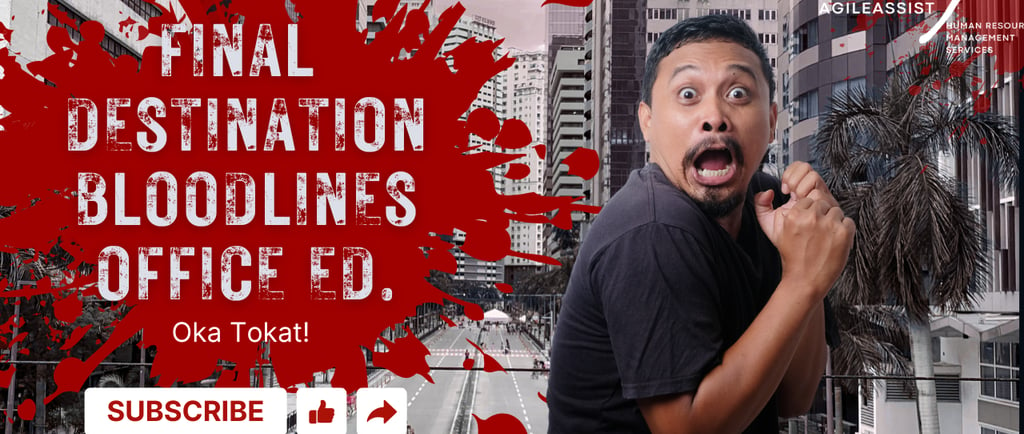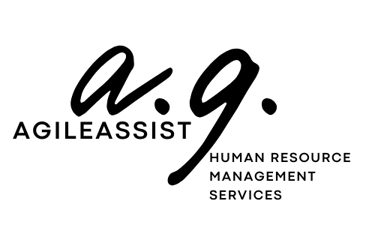Our Daily Stylus ~ 🩸 Final Destination: Bloodlines in the Workplace 🩸
What Horror Films Can Teach Us About Career Survival, Ethics, and the Dark Side of Ambition
CVCII
5/18/20253 min read


In the cult horror franchise Final Destination, the premise is simple: Death has a plan. Those who narrowly escape it soon find themselves ensnared in a complex web of fate, unable to outrun what was “meant to be.” Each character is linked by a bloodline of survival and eventual destruction, haunted by a force that is both invisible and inescapable.
Now, imagine applying that metaphor to the workplace.
It might seem like a stretch, but if you’ve ever worked in a toxic office environment—where agendas lurk behind handshakes, and sabotage hides beneath smiles—then you know exactly what it feels like to have your “professional death” scheduled by someone else’s ambition.
This is the corporate world’s version of Final Destination. And it's not fiction. It’s all too real.
The Office: A Battlefield of Hidden Bloodlines
In the horror films, survivors are bound together by fate; in the workplace, colleagues are bound by projects, politics, and performance metrics. Everyone’s survival seems dependent on a mysterious force—often an unspoken code of loyalty, leadership preferences, or sheer luck. But in many organizations, something darker creeps in: bloodlines of ambition.
These aren’t genetic. They’re strategic.
The favorite who shields themselves with proximity to power.
The networker who weaponizes information over performance.
The silent saboteur who smiles in meetings and stabs in emails.
Unlike in the movies, these killers don’t use bear traps or electrical wires. They destroy careers with rumors, exclusion from key meetings, strategic errors pinned on someone else, and stolen credit for work. They kill reputation. They murder motivation. They dismantle mental health—one passive-aggressive comment at a time.
“Who’s Next?” – The Anxiety of Being Targeted
When you realize that someone on your team may not have your best interests at heart, every meeting starts to feel like a setup. You become hyperaware. You check Slack messages twice before responding. You begin to dread walking past certain desks. You may find yourself questioning:
“Why wasn’t I copied on that email?”
“Did I actually make that mistake—or was it set up?”
“Why does my manager seem colder lately?”
You’re not paranoid. You’re alert.
This is the cost of working in a psychologically unsafe environment. Much like the survivors in Final Destination, you feel like you’re running from something inevitable. But unlike the characters in the film, you have agency. You don’t have to wait for the metaphorical bus to hit you.
Why People Try to “Kill” Others at Work
Scarcity Mindset: When people believe there’s only one seat at the table, they will pull others off the chair just to sit on the floor.
Lack of Accountability: Certain leadership structure often rewards noise over nuance. Loud, manipulative voices drown out ethical, steady ones.
Cultural Rot: Toxic cultures breed toxic behavior. If promotions are tied to performance metrics with no consideration for integrity, then destruction becomes a strategy.
Survival Instinct: Ironically, those who sabotage often feel they are under threat. Their “attack” is their “defense.”
Breaking the Cycle: Choosing to Survive Differently
So how do you survive the Final Destination of your workplace?
Let’s be clear: survival is not about becoming like them. It’s about becoming aware and strategic, without losing your integrity.
✅ Self-Check: Understand Your Own Patterns
Are you unknowingly enabling toxic behavior by staying silent? Are you giving away your power by disengaging?
✅ Document Everything
It’s not petty; it’s self-protection. Save emails. Track your contributions. If something smells off, collect receipts.
✅ Find Allies, Not Just Friends
Seek out colleagues who value honesty over optics. Not everyone has to like you, but a few need to respect your truth.
✅ Go to HR — Wisely
If the toxicity crosses into harassment, report it. But know when HR serves the company more than the employee. Bring facts, not feelings.
✅ Know When to Leave
Sometimes, survival isn’t about staying—it’s about starting over. If the entire culture is built on betrayal, then loyalty is no longer noble—it’s self-harm.
The Final Scene: Reclaiming Your Power
Here's the twist: You are not in a horror film. You are the writer of your own narrative.
Unlike the characters in Final Destination, your fate isn’t sealed. You have choices. You have options. You have worth, even if others try to erase it.
If you're in a toxic workplace, take this as your sign—not just to endure, but to evolve. Whether you stay and push for change, or go and find a better chapter, remember this:
🌟 You are not alone. You are not crazy. And you are not powerless. 🌟
In the bloodlines of office politics, let yours be the one that breaks the curse—not by playing their game, but by refusing to lose your soul to win a seat at their table.
“You don’t have to attend every battle you’re invited to.” — Unknown
Choose peace. Choose purpose. Choose better.
And remember: The real plot twist is becoming someone who thrives in a system that tried to bury you.
Let's talk
careers@agileassisthr.com


